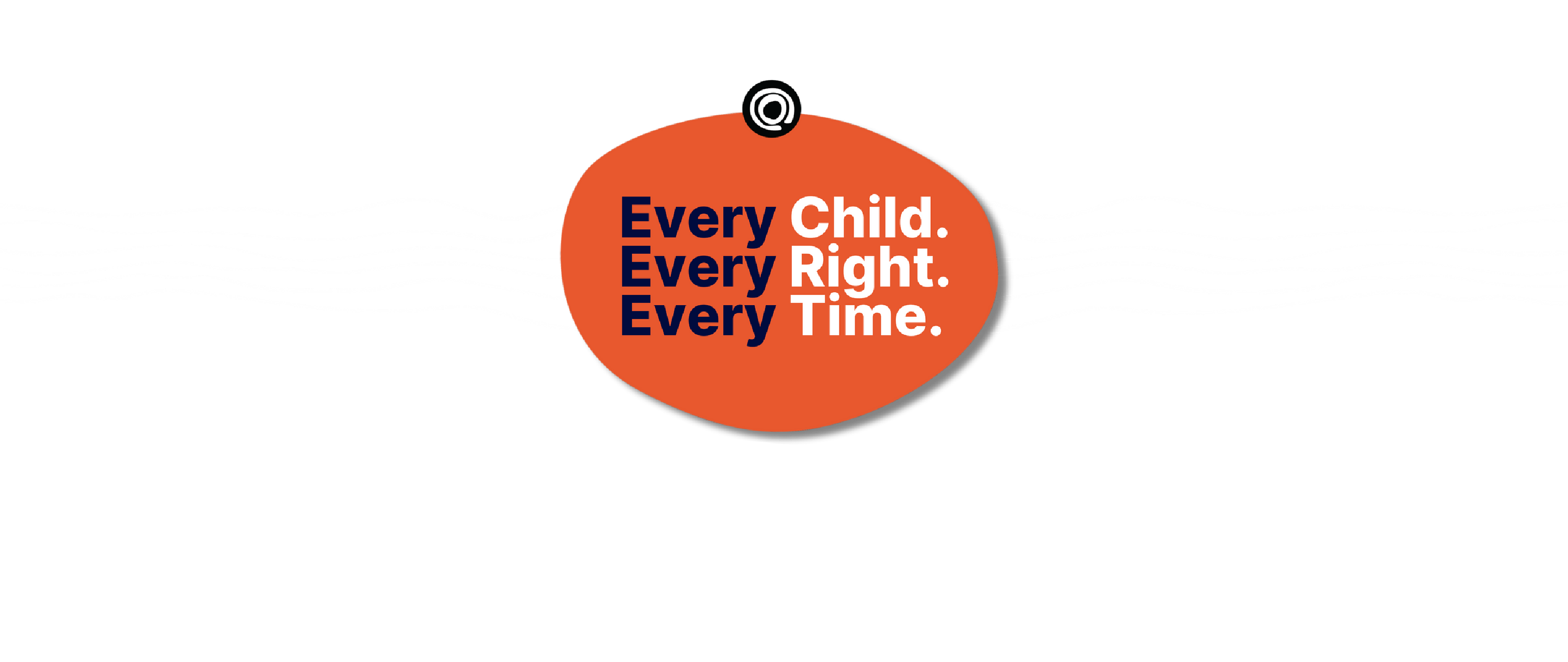What are child rights?
Rights are a collection of legal, social and ethical principles that we are all entitled to enjoy, solely because we are human. Children are entitled to additional rights that recognise their individuality as children and young people.
Children’s rights are set out in the United Nations Convention on the Rights of the Child. This is an international agreement that outlines each right children need to reach their fullest potential. These rights are Inalienable, Indivisible and Interdependent. This means they all work together, are all as important as each other and children are entitled to all of them without exception:
Every Child. Every Right. Every Time.
Upholding child rights begins with a shared agreement and aspiration that all children are entitled to enjoy their rights equally and without discrimination. It also means actively working towards making this a reality for all children.
What rights do children have?
Children and young people have rights regardless of their age, where they are from, what they believe or how they choose to live their lives.
Children’s rights are set out in the United Nations Convention on the Rights of the Child (UNCRC) and include the right to:
- An identity, to be given news and information and to express themselves freely.
- Be protected from violence.
- Family support and if they can’t be looked after by their family, they have a right to be looked after by people who respect their religion, culture and language.
- A full and decent life and to a standard of living that meets their physical and mental needs.
- An education, rest and play.
The United Nations Declaration on the Rights of Indigenous Peoples (UNDRIP) is an international human rights instrument that outlines the rights of Indigenous peoples worldwide. The UNDRIP and UNCRC share common principles and objectives and they work together to promote the rights and wellbeing of First Nations children and young people.
The United Nations Convention on the Rights of Persons with Disabilities (CRPD) is to promote, protect and ensure the full and equal enjoyment of all human rights and fundamental freedoms by all persons with disabilities, and to promote respect for their inherent dignity.
Why are child rights important?
Children and young people are not passive, powerless, needing only protection and subject to adults’ interpretations of ‘what’s best’ - they also have their own stories, experiences and expertise - as well as the agency to use their voice. When we do this thoroughly and together, children can thrive.
Everyone has a role to play in upholding the rights of a child, however governments, policy-crafters and decision-makers have a duty to take active measures that affirm, protect and promote children's rights.
A rights-affirming approach highlights accountability, promotes developmental flourishing for children, values meaningful participation, works towards ending oppression and discrimination and places the best interests of children and young people at the centre of legislation, policy and practice.
Last updated
16 September 2024

